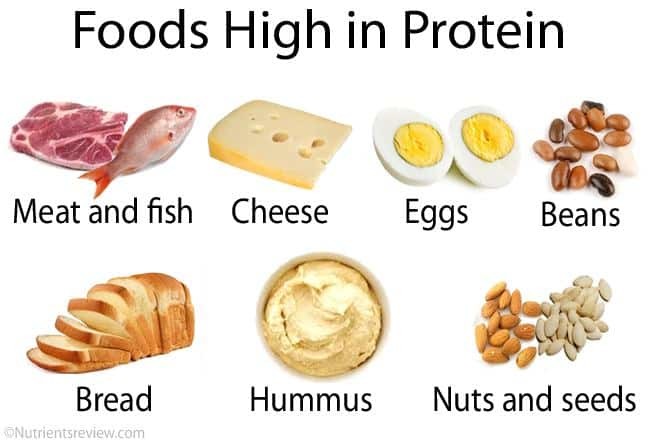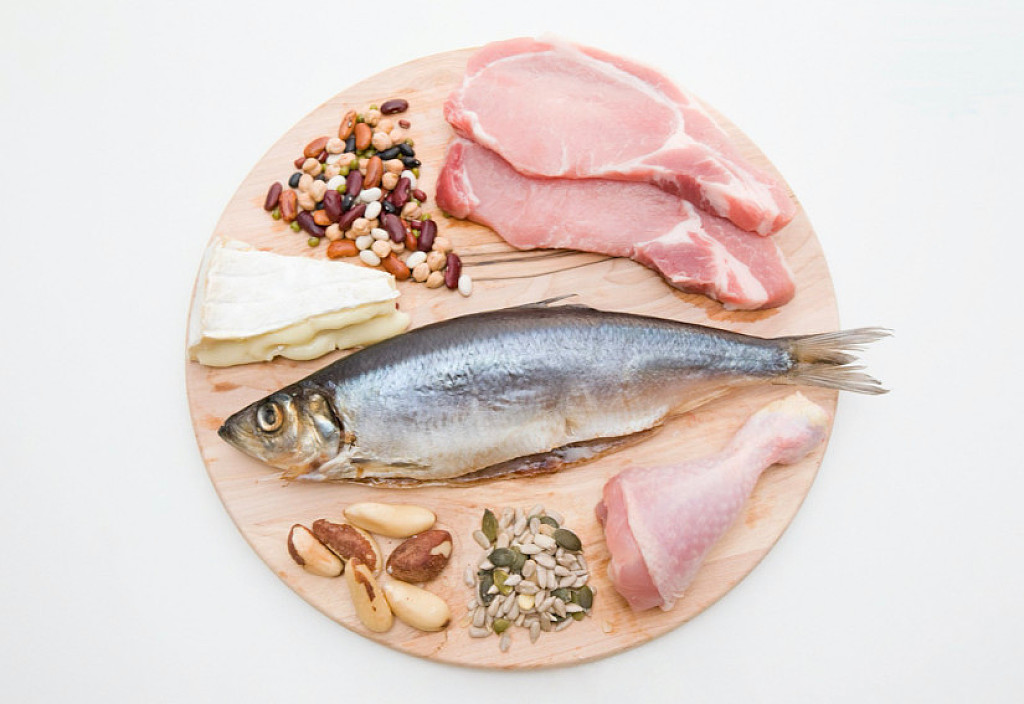Running News Daily
Running News Daily is edited by Bob Anderson. Send your news items to bob@mybestruns.com Advertising opportunities available. Train the Kenyan Way at KATA Kenya and Portugal owned and operated by Bob Anderson. Be sure to catch our movie A Long Run the movie KATA Running Camps and KATA Potato Farms - 31 now open in Kenya! https://kata.ke/
Index to Daily Posts · Sign Up For Updates · Run The World Feed
6 Signs Your Protein Intake is Too Low
It keeps your energy up, builds muscle, and keeps you satiated, but it can be a nutrient many runners lack in their diet: protein.
In general, female athletes are more likely to miss the mark on their nutritional needs than male counterparts, says Yasi Ansari, national media spokesperson for the Academy of Nutrition and Dietetics, registered dietitian, nutritionist, and Certified Specialist in Sports Dietetics. That is especially true for runners who restrict their food intake, putting themselves at risk for low protein intake.

"In the work that I do, it's really important to encourage my athletes to be eating enough to ensure they are meeting their nutrition needs from all their macronutrients," she says.
Eating the right amount of protein plays a significant role in a runner's diet. It helps repair muscles after a rigorous workout. It also builds and maintains muscle mass, which boosts performance. And it helps to support the immune system. "Protein plays many other roles as well," says Ansari. It aids in cell turnover, for example, "the structural component of the body and makes up enzymes and some hormones while playing a role in a variety of physiological functions."
"Hemoglobin is also a protein that carries oxygen," she adds. "Without enough protein we are also at risk of fatigue which can lead to poor performance and low energy during training."
Of course protein intake varies depending on the intensity of your run workouts. Many female athletes are able to consume the recommended protein requirements from their daily diet as long protein intake is 10 to 15 percent of their nutrition plan, according to the Journal of Sport and Exercise.
If you're unsure on whether you're getting enough protein, there are signs that you can pay attention to.
Signs You're Not Eating Enough Protein
Dave Scott, six-time IRONMAN champion, works with many athletes to make sure they consume the right balance of nutrients to avoid any issues during a competition. He outlines six warning signs that it might be time to up your protein intake:
Restless sleep
Lack of clear cognitive thought process
Loss of muscle tissue or changes in body composition
Brittle nails and hair
Feeling lazy, sluggish, or generally fatigued
Low libido
Scott suggests women should use the following protein guideline to ensure they consume the right amount:
Ansari recommends checking with a registered dietitian to dial in on your precise protein needs. But as a general rule, you may need more protein if you're at risk of energy deficiency, you've increased your training, the intensity of your training has gone up, you're pregnant, recovering from injury, or an older adult.
Everyone should be including protein in every meal. "Several studies agree that evenly distributing protein at about 25-35 gm of protein per meal, throughout the day will also help optimize muscle protein synthesis compared with an uneven distribution of protein," says Ansari.
Some tips to do so: Sprinkle protein powder in your oatmeal, smoothie, coffee, or yogurt parfait in the morning. Eat beans or meats at lunch or dinner, and snack on high-protein foods in between meals (like cheese and nuts or peanut butter and crackers).
In a traditional diet Scott recommends eating cold water fish, grass-fed beef, and chicken three to five times a week. For vegetarian or plant-based diets he recommends Nori seaweed or Tempeh instead. (Note: While vegan and vegetarian athletes may be at higher risk for low protein intake, Ansari is a firm believer that it is possible to have a solid nutritional game plan: "If you are following a vegan or vegetarian eating pattern you can meet your protein needs with an appropriately planned vegan or vegetarian eating pattern.")
"Consistency is key," says Ansari. "See which protein sources work best for you and how/when you can add more protein to your plates."
Some other great protein sources include:
Ansari adds the encouragement that you likely already know if you're getting enough protein in your diet based on how you feel. "If you're an athlete who is meeting their needs through consistent and adequate nutrition, you are likely meeting your protein goals," she says.
by Trail Runner magazine
Login to leave a comment




